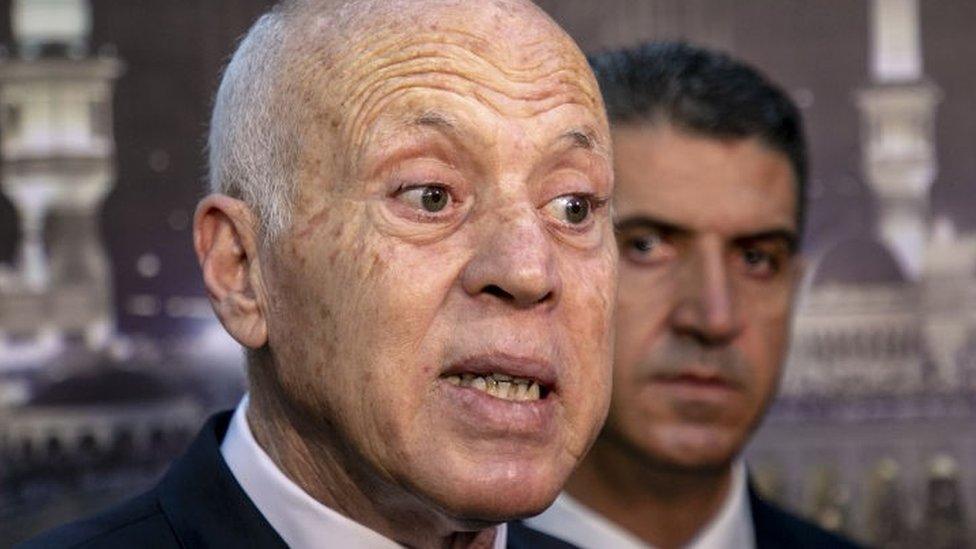Kais Saied: Why Tunisia's president picked on sub-Saharan African migrants
- Published
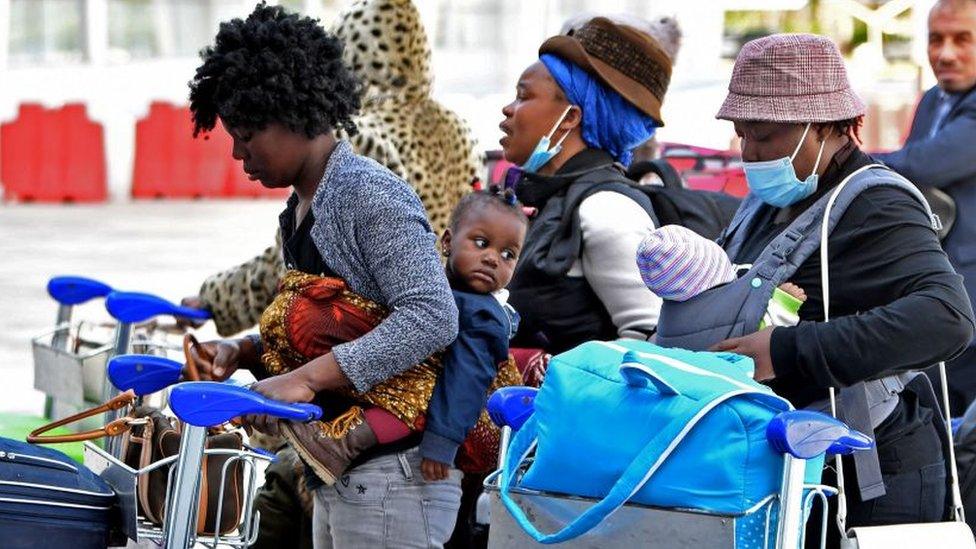
Some migrants have decided to leave Tunisia in the wake of President Kais Saied's comments
When in trouble, blame the migrants or ethnic minorities.
That is a tried and tested tactic used by populist politicians or authoritarian leaders to win elections or shore up waning popularity.
This type of populism appears to be the most likely explanation for February's outburst by Tunisian President Kais Saied against sub-Saharan African migrants in his country.
Mr Saied made the extraordinary remark that these people were part of a conspiracy to change the demographic composition of the North African country, which has a predominantly Arab-Muslim culture.
As history clearly demonstrates, it is a dangerous tactic that often leads to violence. And that was precisely what happened in Tunisia.
Following the comments, black African migrants felt the full force of the fallout. Some were afraid to leave their homes out of fear of random violence or verbal abuse.
A student from southern Africa who has been in studying in Tunisia for the past five years painted a harrowing picture of how Mr Saied's remarks affected black Africans in Tunisia.
She told the BBC Africa Daily podcast that some had their houses set on fire while others were beaten up, and that she no longer felt safe in the country.
This resulted in many black Africans heading to their embassies to organise repatriation.
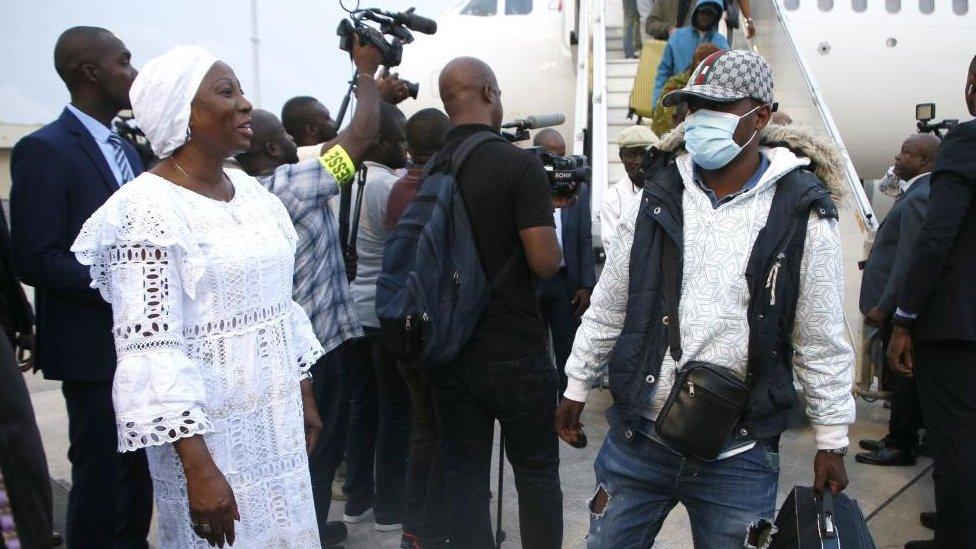
Ivory Coast Foreign Minister Kandia Camara (second left) welcomed migrants who flew home on a repatriation flight earlier this month
The Tunisian government has defended the president, arguing that his speech was aimed at those who had come to the country without permission and not those in the country legally.
There are an estimated 20,000 sub-Saharan migrants in Tunisia, which has a population of 12 million.
But Tunisian rights researcher Kenza ben Azouz told the BBC: "This is not a matter of legality or illegality. It's about being black in this country".
She added that black Tunisians, who make up around 10-15% of the country's population, suffer discrimination because of the colour of their skin. This is an issue picked up by a BBC News Arabic survey last year.
The problem of sub-Saharan Africans who travel to North Africa hoping to make it across the Mediterranean into Europe is not new. It has long been a bone of contention between North African states and Europe.
What is new this time, though, is the language Mr Saied used to address the issue. It seemed designed to stir up fear and nationalist fervour - to rally the masses around a cause of some kind at a moment when Mr Saied's woes have continued to pile up.
Economically, Tunisia is in a very bad shape. It has never recovered from the years of political turmoil that followed the overthrow of President Zine el-Abedine Ben Ali in 2011.
Tourism was hit badly by terror attacks and the downturn was further compounded by the covid pandemic and then the war in Ukraine.
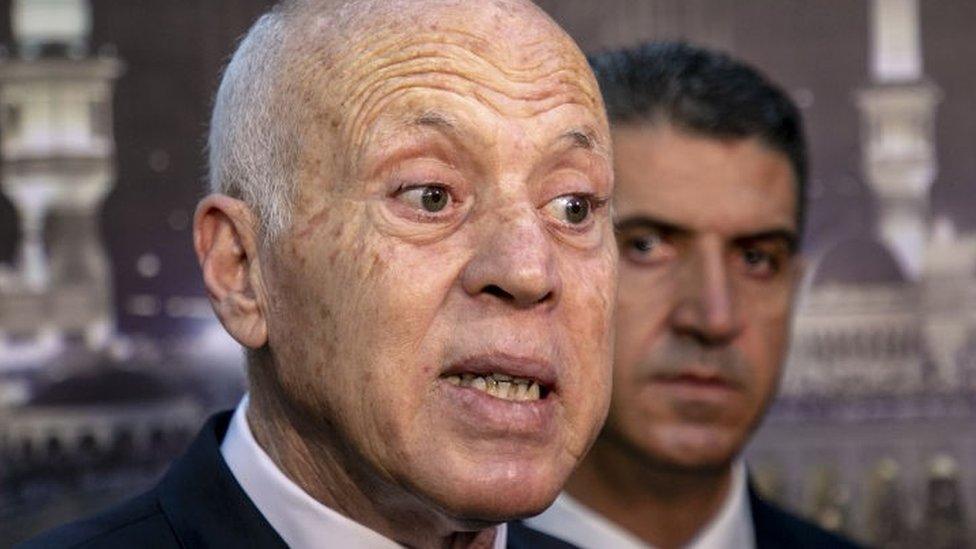
President Kais Saied dissolved parliament in 2021 and has re-written the constitution
Politically, things are not going the president's way either.
Ever since he sacked the cabinet and dissolved parliament in the summer of 2021 and announced a road map that he promised would put the country on the path to stability and prosperity, his plan has suffered one bruising setback after the other.
The committee that he handpicked to draft a new constitution withdrew its support after he made drastic changes to the draft they had submitted. He effectively gathered all the levers of power in the hands of the presidency and emasculated the legislature and the judiciary.
Then, the online public consultation over the draft attracted only a few hundred thousand people out of an electorate of nine million.
The poll itself was effectively boycotted by some 70% of those eligible to vote.
His plan did not fare any better at the next step: the parliamentary election held late last year.
The turn-out was a record low, 11%, prompting Mr Saied to say the people did not want a parliament.
With his frequent tirades against the media and the political class, accusing them of corruption and abuse of power, the president has in effect anointed himself as the saviour of the nation - the only man untainted by politics and the pursuit of power.
That is why floating the idea that Tunisia is facing an existential threat from sub-Saharan migrants appears to be a convenient distraction.
But the xenophobic discourse is not entirely invented by the president.
Take the small political party that supports Mr Saied, the Tunisian Nationalist Party. It has been peddling xenophobic views - strikingly similar to those of anti-immigrant far-right parties in Europe, and campaigning for the expulsion of black migrants.
The party claims that the sub-Saharan Africans are settlers who will eventually dispossess the Tunisians of their land, and it draws a parallel with Israel and the Palestinians.
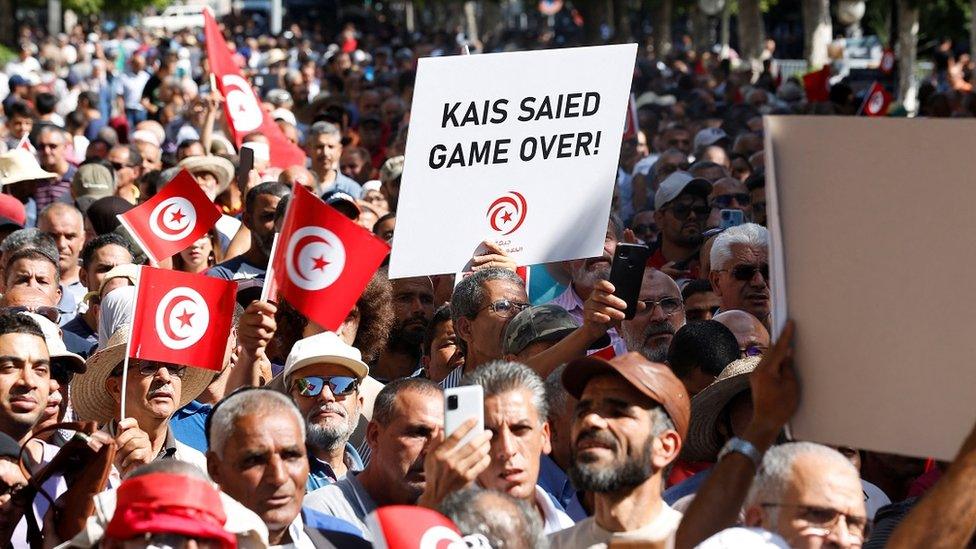
Supporters of the Ennahda party organised demonstrations last year calling on the president to resign
Playing the nationalist card has emerged as a convenient tactic across North Africa and the Middle East to counter the pervasive influence of political Islam, which is basically a transnational ideology, and whose supporters in Tunisia still represent Mr Saied's biggest political opponents.
Nationalism can be benign or veer into dangerous territory in times of crisis. Mr Saied has repeatedly denounced his political opponents as "traitors".
This polarisation is not unique to Tunisia.
Mr Saied seems to have taken a leaf from the strategy deployed by the Egyptian government of President Abdul Fattah al-Sisi to undermine the hold of the Islamist ideology on society and political discourse.
It has sought to re-awaken a sense of unique national identity as an antidote to the transnational ideology of Islamism, where faith comes before country.
And like Tunisia, Egypt too has seen a rise in the anti-black rhetoric voiced by ultra-nationalists, who see the presence of black African migrants in Egypt as a threat.
Reacting to events in Tunisia, an ultra-nationalist group in Egypt, calling itself Nationalist Revival, expressed support for Mr Saied.
The group claims that Egypt has been overwhelmed by Sudanese and sub-Saharan immigrants, calling on the authorities to stop the influx and expel them.
The same people recently campaigned against a scheduled performance in Egypt by American stand-up comedian Kevin Hart because of the artist's support for Afro-centrism - the belief, among other things, that ancient Egypt was a black civilisation.
That of course infuriated many Egyptians, the vast majority of whom, like many Tunisians, try to differentiate themselves from sub-Saharan Africa.
The performance was seen as part of a wider conspiracy to dispossess the Egyptians of their own culture and land, while also invoking the Palestinian situation, in ways reminiscent of the Tunisian Nationalist Party.
The show was subsequently cancelled, but the organisers gave no reasons why. That was regarded as a victory for the Egyptian nationalists.
In response to the international outcry, Mr Saied has made some conciliatory remarks in the past few days, emphasising that Tunisia was an African country and that he has relatives married to black Africans.
And the government has announced some measures to reassure the black African community, such as setting up a hotline for complaints and cancelling fines for those who have overstayed their visa.
But it was all a bit too late.
The damage to the country's image has been done.
Once the nationalist genie has been let out of the bottle, it can develop a life of its own. In extreme moments, foreigners or ethnic minorities can be the first victims.
- Published10 March 2023
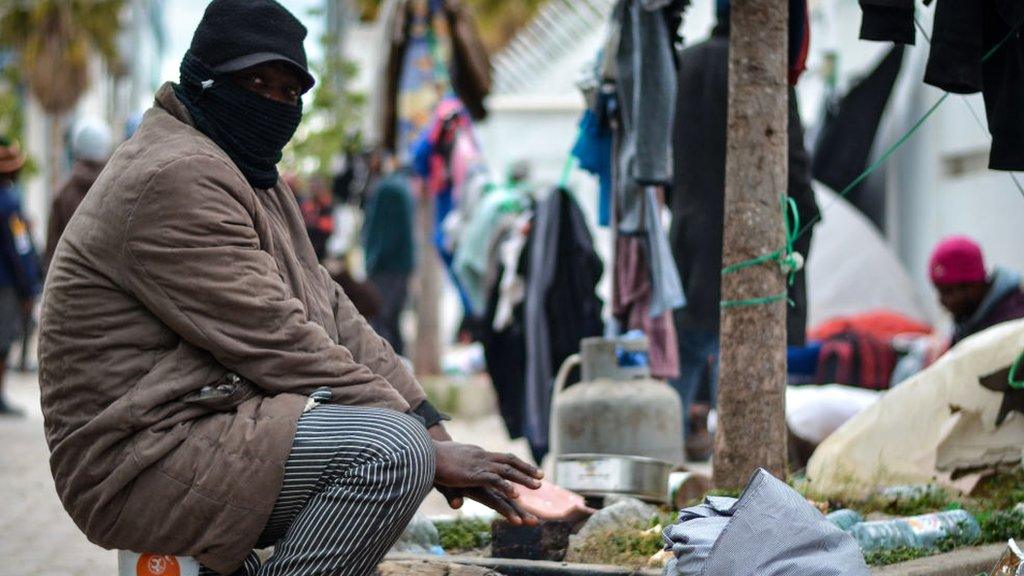
- Published28 August 2022
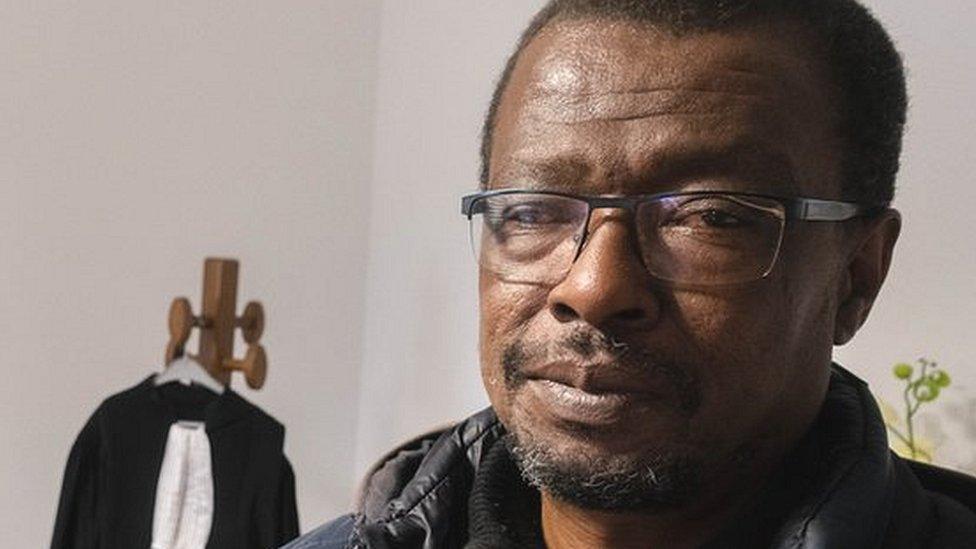
- Published25 July 2022
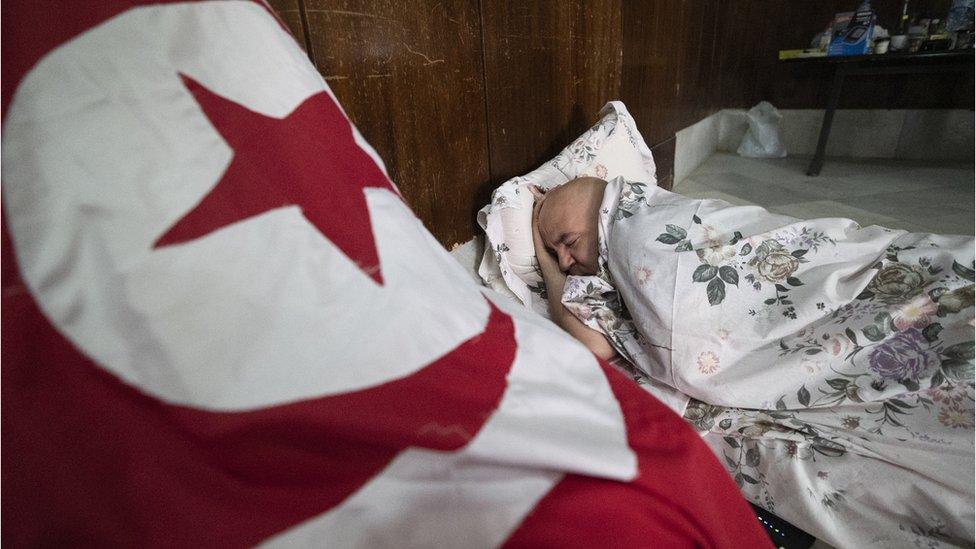
- Published24 July 2022
